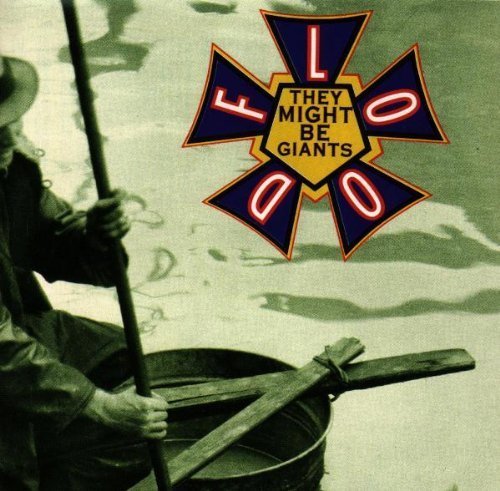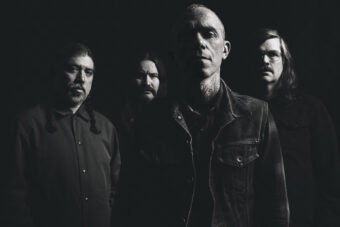Two weeks into the 1990s, two Brooklynites named John released a clever, eclectic, blissfully quirky collection of 19 tracks called Flood on Elektra Records—and they did this at a time when major label rosters were still primarily comprised of proven pop stars, hair-metal heavies, and R&B icons. They Might Be Giants’ quintessential third LP landed on record store shelves 30 years ago on January 15, ultimately becoming something of a zany presage for the impending alt-rock wave that had only just started to billow.
RELATED: TMBG’s John Flansburgh Reflects on Flood 30 Years Later: “It Was an Exciting Time”
Rife with obscure pop references, thought-provoking tongue-in-cheek lyrics, a cornucopia of instrumentation, and wildly unpredictable melodies, this fun, addictive, genre-embracing album from They Might Be Giants—longtime friends John Linnell and John Flansburgh—would introduce the world to the morbid, metaphysical genius of “Dead,” the polka pulse of “Particle Man,” the ‘60s surf-rock vibes of “Twisting,” the infectious harmonies of “Birdhouse in Your Soul,” and “Istanbul (Not Constantinople),” a cover song no respectable ‘90s mixtape was complete without.
POLL: Which TMBG Album Is the Best?
Three decades later, Flood—the introduction to They Might Be Giants for many fans—still holds up and retains the bad-ass distinction of being one of the only albums released in all that time to have its own opening theme song. [“Theme From Flood.”]
To mark the 30th anniversary of this offbeat record, which continues to be the college radio darlings’ best-selling offering, we reached out to several musicians for their thoughts on Flood, including artists who’ve cited the experimental studio set and its creators as a source of inspiration for their own works. The following reflections are in their own words.
Chris Carrabba
Dashboard Confessional lead singer and guitarist
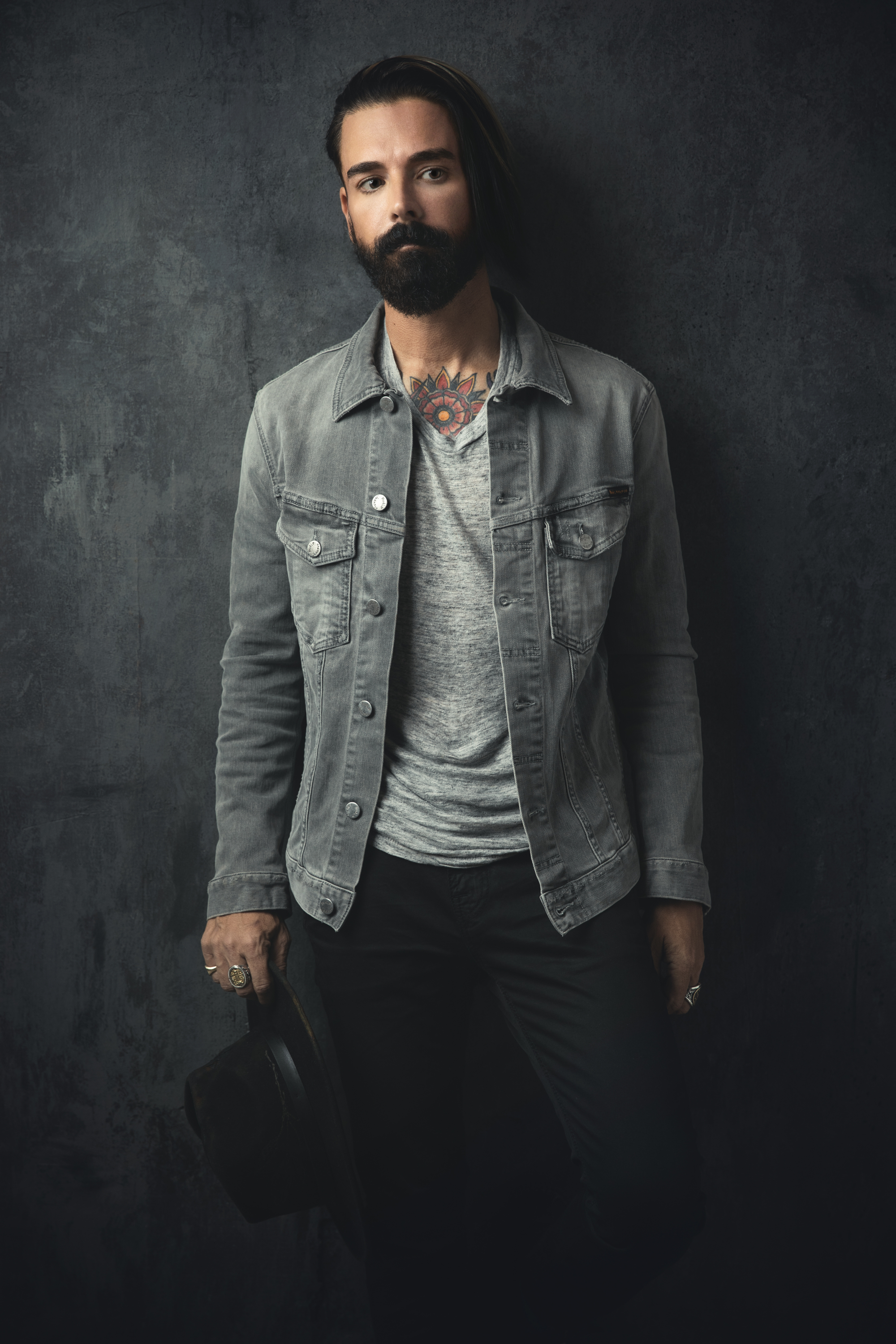
Flood was a really important record for me. I had Lincoln and I was super, super, super into They Might Be Giants, and I remember that Flood came out and I think it was my friend Sari who’d gotten it and we all went to her house—it was 10 of us, and we sat around listening to it while she dubbed copies from CD to tape for all of us. By the time I got my tape, I’d already had the album memorized.
I was such a fan, but there was something about Flood that was such a leap forward. Before it came out, I remember they released the video, and it was the first time—and it wasn’t in heavy rotation or anything—it is the first time I can remember sitting all day to see the video played on MTV.
So, we got this record, and we just devoured it. I remember when “Theme From Flood” came on … it’s, like, truly extraordinary. I can’t think of another album that prepares you in totality to be, like, completely and utterly absorbed into this record—so much so that many years later, on [the 2007 tour-only covers record] The Wire Tapes, I replicated every note and tone and converted the “Theme From Flood” into the album’s opener.
Then there’s “Birdhouse in Your Soul.” I take my cassette home to start learning the song I heard sparingly on MTV. “I am going to learn this,” I say—and if you need to know every chord that exists, they’re on that song. It’s just absolutely incredible in this beautifully high-minded way.
They have this beautiful way of doing a thing—and I can only really think of the Beach Boys … I would say it’s the Beach Boys, They Might Be Giants, and then the Beatles in doing this—in taking extra complex chordal arrangements and key changes but allowing the melody to anchor it in such a way that anyone can sing along. If you are a musician, you are devouring what they did on Flood. You think, “There is another level here I can someday reach if I go for it”—which, by the way, I’ve yet to.
They Might Be Giants and Beck are similar in the way that they chose to embrace a genre for a moment and explore it for all its worth, without abandoning what they’d learn and just made, but moving it into another genre.
There are moments on there that have created indelible Pavlovian responses in me. I can’t hear the phrase “Minimum Wage” without … I hear exactly what comes next in my head: the whip and the “hee-yah.” There’s “Your Racist Friend,” which has a message, but it’s laced in this humor—it’s disarmingly humorous. There are themes of great depth, but there is a sense of humor in there. That song brought me closer to considering things like racial inequality than I was ever going to get from Bob Dylan or protest songs. I wasn’t there yet; I was still very young when this came out.
Then there are moments on there where it’s like, “Twisting.” I found it fascinating, the tie-back to something I had listened to as a kid—like Buddy Holly. For the first time, it was like, “Oh, this stuff has a place in music that is current,” and when I say current, Flood was not current. It was way ahead of its time. That is the beauty of Flood and why we are talking about it and celebrating it now. There was nothing else like it at that time, and because of that, it remains timeless.
Damian Kulash
OK Go lead singer and guitarist
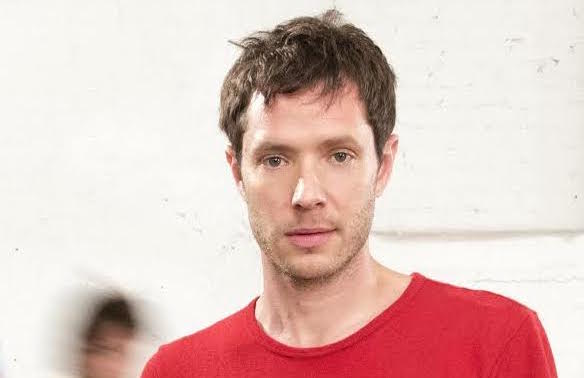
I’m lucky I was a few months away from high school when Flood came out. The angst and self-seriousness of the ‘90s was about to take flight, and I was a model pubescent passenger. But luckily, Flood made it in under the wire, while I could still earnestly lose myself in the surreal, complex world that it created.
It was angular and melodic, propulsive and immediate, but in a way that felt like it had depth, too. Unencumbered by the snotty concepts of “novelty” or “quirkiness” that I was about to learn, I didn’t hear genre-hopping or pastiche. The songs were natural outcroppings of a generous, welcoming musical universe—one defined not by a particular sound or set of instruments, but by its warmth and uniqueness.
I remember being in the back seat of long family car rides with the cassette looping on my Walkman. The world in the headphones was more lovely, more interesting, and somehow more familiar than the one flying by outside the window.
Mike Doughty
Soul Coughing lead singer and guitarist from 1992 to 2000

It’s been a long time since I listened to Flood from front to back. There’s all these weird chord progressions and these weird time signature things Linnell does. At the time this record came out, I don’t think I even had the language to articulate how much I appreciated it. The “nerd thing” is very unfortunate for those guys, because what they do, it’s art music. Anything that fucking references the Longines Symphonette is fucking gold. It is art music—I listened back to it recently, and I heard a lot of David Byrne in it, which I’d never really connected to.
This album was an inspiration for me. Linnell is deeply underrated as a lyricist. Just look at “Kiss Me, Son of God” [from Lincoln]. That is art shit—art with three capital A’s at the beginning. I remember I first heard “Don’t Let’s Start” on MTV in 1986, and then I remember buying the Flood cassette when it came out at Tower Records on Fourth and Broadway—living in the Eugene Lang [College of Liberal Arts] dorms in Union Square, when Union Square [in New York City] was a riskier proposition.
On Flood, “Letterbox” is the one I listen to over and over again. And “Dead.” And they are both art shit, this fucking art shit—not fucking “20-sided die nerd shit.” That is art. There is some sophisticated stuff going on there. You can feel a melody moving up the scale as it goes along, and there’s a perfect arc to everything—chordal digressions. Linnell is a guy who is one of the greats, and he has not gotten his due.
Roger Lima
Less Than Jake bassist
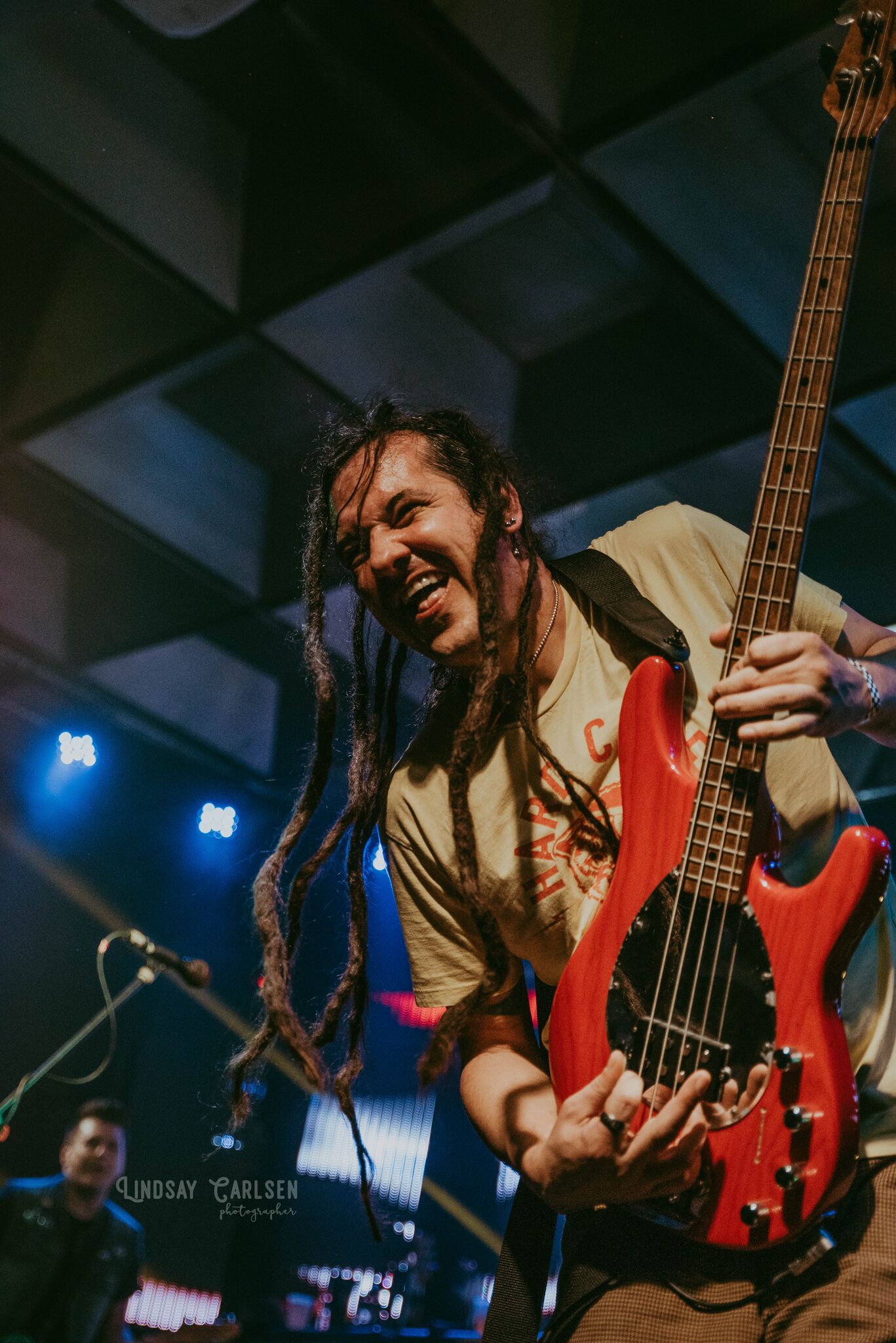
When Flood was released, it ransacked its way through all of the different scenes in my high school. Nerds liked it, cheerleaders liked it, and even my clique of heavy-metal-jacket wearers liked it. There was a joy in singing seemingly out-of-this-world lyrics, and a bond that happened with friends who knew every last word.
They Might Be Giants had already created something new on previous records, but Flood seems to bring their unique sound into a cohesive group of songs that had just enough variety that everyone could find their favorite and latch on. “Someone Keeps Moving My Chair” was the track that I was obsessed with, along with the classics like “Birdhouse in Your Soul” and “Particle Man.” I still know every word on that record, and I feel sorry for anyone that missed out on the fun.
Open Mike Eagle
Hip-hop artist and comedian

I have been listening to Flood for 30 years, pretty much. I definitely didn’t hear it when it first came out, but it wasn’t long after that. My introduction to They Might Be Giants was a three-step process. First, I saw the video for “Birdhouse in Your Soul” on MTV on either 120 Minutes or this other show they had, Alternative Nation. I saw that video and it hooked me immediately. I didn’t know who the band was, I just knew I liked the aesthetic.
Then, on Tiny Toon Adventures, I remember one of the episodes super randomly was, like, this MTV-type episode and two of the songs they had videos for happened to be “Particle Man” and “Istanbul.” It was wild! The other song was Aretha Franklin or Madonna, and then, just randomly, these two They Might Be Giants songs. I remember “Particle Man,” in particular, just the way they animated it—it hooked me as a kid.
And then, a friend of mine in school, they had an older sibling who had Flood and they’d dubbed a tape for me. I was like 10 or 11 years old, maybe 9, and it had Flood on one side and [1988’s] Lincoln on the other. I listened to it over and over again. I was constantly listening to it.
I think what I respect the most about They Might Be Giants is how they don’t compromise. Their style has always been true to who they are as human beings. They have never been about trying to chase what’s going on, being trendy or relevant—chart-toppers. They have always made the music they wanted to make, so their biggest influence for me was how to make a career without compromising your aesthetic, which is not easy. I mean, they have made album after album for 30-plus years.
For me, “Birdhouse” is my all-time favorite—that was my hook. I hear “Twisting” and it really takes me back to when I was first hearing that album, with the surf-rocky melody. It’s a classic They Might Be Giants song: It sounds happy until you actually listen to what they’re saying. There are some wild break-up songs on those albums. Like “Lucky Ball and Chain”—there is a lot of despair there if you listen to what they’re saying. “Twisting” is also really stealthy in that way. I feel like I’ve been listening to this album for so long, I just start singing along with it when it comes on—it is so deep within me.
Charlene Kaye (aka KAYE)
San Fermin lead vocalist from 2014 to 2019

They Might Be Giants are one of the first bands that taught me the importance of irreverence and playfulness in songwriting. I was a teenager when I first heard Flood, learning how to drive in my hometown of Scottsdale, Arizona, playing coffee shops and open mics and in a phase of shamelessly copying all the artists I worshipped in my own early writing.
I find it really hard to incorporate humor into lyrics, as you only have words and melody at your disposal to translate a comedic statement as opposed to tone of speech and physicality. That said, I always found myself laughing to songs like “Your Racist Friend” with lyrics like “Can’t shake the devil’s hand and say you’re only kidding.” You know it’s good songwriting when a lyric makes you laugh, but it’s also disturbing and thought-provoking in equal measure.
Then there are songs like “Particle Man,” which I tried desperately to find meaning behind as a teenager … then read interviews as an adult in which John Linnell said, “‘Triangle Man’ was based on a friend’s observation that Robert Mitchum looked like an evil triangle when he took his shirt off in Night of the Hunter. Nothing else not explicitly stated need be inferred.”
Cool. I’m a Virgo—things need to make sense to me, it pleases me when there’s order and meaning—but one of my lessons as a songwriter is that not everything has to make sense, and often, they shouldn’t. Thanks for that lesson, TMBG.
Chris McCrory
Catholic Action singer and guitarist
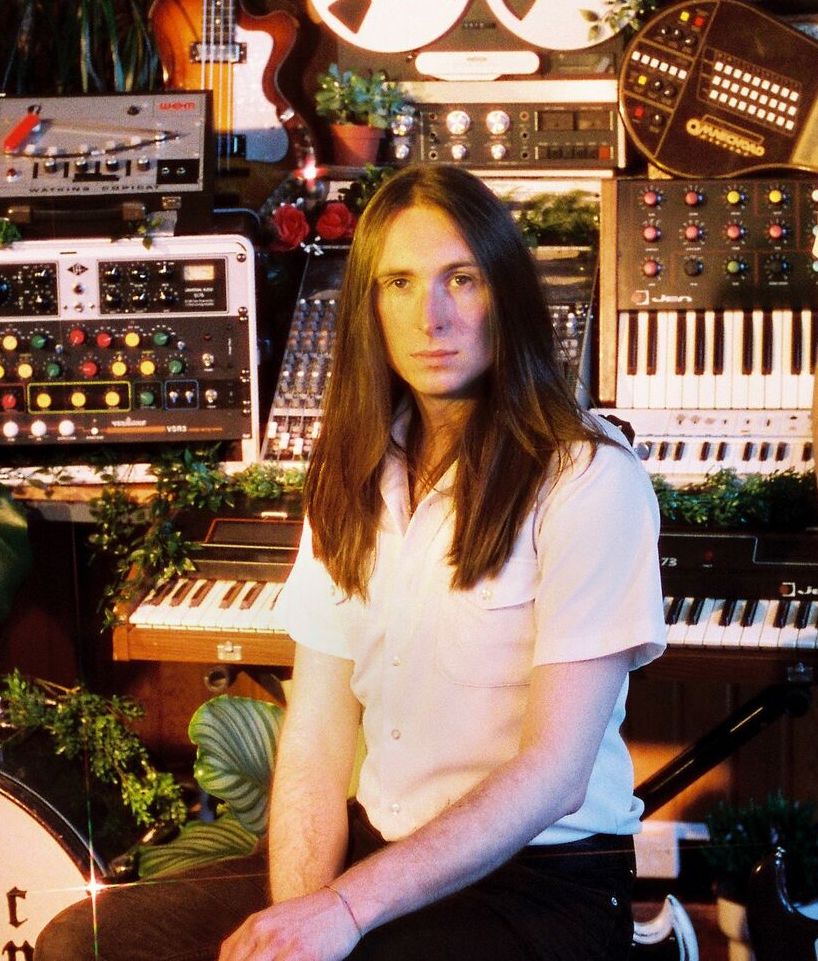
At 15, I spent a summer in Spain with my family, and we had a rented car with only two cassette tapes. One was The Best of the Beatles, and the other was Flood. When I first heard “Birdhouse in Your Soul,” I was hooked and promptly spent weeks wearing the poor cassette tape out as we drove around the Spanish countryside, singing along.
It is an album that always warms me up with its bright, almost manic melodies and smart songwriting. And in more recent years, “Istanbul” has become a firm favorite in the Catholic Action tour van.

